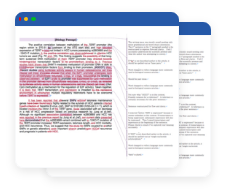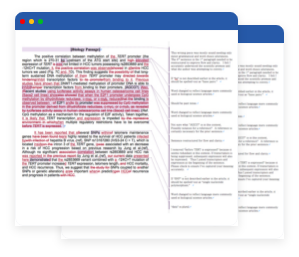How to Use Colons (:)
A colon (:) is a punctuation mark that illustrates or expands on the information that comes before it. In general, colons follow independent clauses and introduce words and phrases, or they can focus attention on a list.
However, authors should keep in mind that a colon is a powerful punctuation mark and should therefore be used sparingly. This article explains what colons are, provides examples of how to use colons, and presents ways to prevent common mistakes when using colons.
Table of Contents
Introducing a Word or Phrase
A colon is often used to introduce a word or phrase. Add the colon after an independent clause.
- Example
- John only does one thing during his free time: rock climbing.
- Example
- I have a great idea: let's go shopping tomorrow.
When using a colon to introduce an item, the text preceding the colon must be an independent clause or a complete sentence.
- Incorrect
- One essential step for writing an essay is: proofreading.
- Correct
- One essential step for writing an essay is obvious: proofreading.
How to Use Colons In Your Writing
Prefacing a List
Use a colon to introduce a list or series of items.
- Example
- I am taking the following classes: thermodynamics, fluid dynamics, and linear algebra.
Avoid using a colon before a list that doesn’t require punctuation or where another punctuation mark would be more appropriate.
- Incorrect
- I love video games such as: Super Mario, Halo, and Doom.
- Correct
- I love video games, including Super Mario, Halo, and Doom.
Apply colons correctly when creating a list
- Incorrect
- The three major species in Starcraft are: Terran, Zerg, and Protoss.
- Correct
- Starcraft has three major species: Terran, Zerg, and Protoss.
- Correct
- The three major species in Starcraft are Terran, Zerg, and Protoss.
- Incorrect
- I have many friends from: Columbia, Italy, and India.
- Correct
- I have many friends from three countries: Columbia, Italy, and India.
- Correct
- I have many friends from Columbia, Italy, and India.
- Incorrect
- My morning routine includes: making the bed, washing my face, and brushing my teeth.
- Correct
- My morning routine includes minor activities: making the bed, washing my face, and brushing my teeth.
- Correct
- My morning routine includes making the bed, washing my face, and brushing my teeth.
Common Mistakes When Using Colons
Although colons can be used in many situations, there are some common mistakes writers should avoid when applying them to their academic writing.
Separating clauses with unrelated content
A colon can be used between two independent clauses if the second clause emphasizes or adds important details to the first clause.
- Incorrect
- I decided to take a day off: we have a new president.
- Correct
- We canceled our family trip: everyone got food poisoning.
Overusing colons
A well-placed colon calls the readers' attention and says, "This information contains something important: examples or clarifying details."
Because colons are so attention-grabbing, they are often used to clearly indicate which information is important. For this reason, many authors use colons to introduce the main argument or supporting evidence in academic papers.
More Tips for Using Colons
Proper capitalization with a colon
Do not capitalize the first word after the colon unless it is a proper noun, a section of a quote, or the first sentence in a series.
- Incorrect
- The following ingredients are needed to make a cake: Eggs, milk, and sugar.
- Correct
- I want to visit the three most beautiful cities in Europe: Venice, Prague, and Rome.
Using a colon instead of a comma
When a quotation contains multiple sentences, introduce it with a colon rather than a comma.
- Example
- Steve Jobs once said: "Your time is limited, so don't waste it living someone else's life. Don't be trapped by dogma, which is living with the results of other people's thinking."










